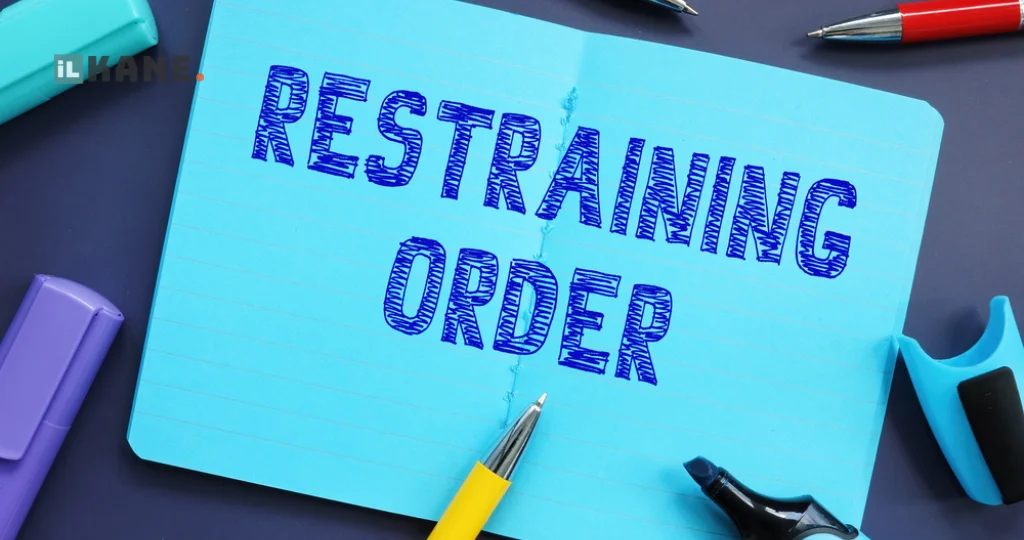Understanding the Impact of Having a Restraining Order on Your Record Introduction: Navigating the legal system can be a daunting experience, especially when it comes to personal matters such as restraining orders. If you find yourself in a situation where you have obtained or are considering obtaining a restraining order, it is important to understand the potential impact it can have on your record and future background checks. In this blog post, we will delve into the significance of having a restraining order on your record and shed light on how it can affect various aspects of your life.
The Basics of Restraining Orders:
Before we dive into the impact, let’s briefly touch upon what a restraining order entails. A restraining order, also known as a protective order, is a legal document issued by a court that prohibits an individual from contacting or coming near another person. It is typically sought to protect victims of domestic violence, harassment, or stalking.
Understanding Background Checks:
In today’s digital age, background checks have become a standard practice for many employers, landlords, and even potential romantic partners. These checks aim to provide a clear picture of an individual’s history, including any legal issues or records that may raise concerns. When it comes to background checks, having a restraining order on your record can potentially raise red flags.
Impact on Employment:
One significant area where a restraining order can have an impact is in the realm of employment. Some employers may view a restraining order as a sign of potential risk or instability, leading to hesitation in hiring or promoting an individual. However, it is essential to note that each employer’s policies may differ, and some may take a more lenient approach.
Impact on Housing:
Similar to employment, a restraining order can also affect your housing prospects. Landlords and property managers often conduct background checks to ensure the safety and well-being of their tenants. Having a restraining order on your record may be a cause for concern, as it could be seen as an indication of potential conflict or disturbance within the community.
Impact on Personal Relationships:
While a restraining order is meant to protect individuals from potential harm, it can also impact personal relationships. When someone discovers that you have a restraining order on your record, it may lead to questions or concerns about your character or past behaviors. It is essential to have open and honest conversations with loved ones to provide context and clarity.
Navigating the Impact:
Although having a restraining order on your record may have potential consequences, it is not the end-all, be-all. It is crucial to be proactive in addressing any concerns that may arise during background checks. Here are a few steps you can take to navigate the impact:

Be transparent:
When applying for a job or seeking housing, consider discussing the restraining order upfront. Explain the circumstances surrounding the order and highlight any steps you have taken to ensure personal growth and safety.
Seek legal counsel:
If you believe that a restraining order is no longer necessary, consult with an attorney to explore the possibility of having it removed or modified. This can help present a more favorable image during background checks.
Focus on personal growth:
Use the experience as an opportunity for personal growth, taking steps to address any underlying issues that may have led to the restraining order. Show that you have learned from the experience and have taken steps towards positive change.
While having a restraining order on your record can have an impact on various aspects of your life, it is essential to remember that it does not define you as a person. By being proactive, transparent, and focusing on personal growth, you can navigate the potential hurdles that may arise during background checks. Remember, your past does not have to dictate your future.
Protecting Your Future:
Managing the Consequences of a Restraining Order. When it comes to personal safety and legal matters, it’s important to be aware of the potential consequences of a restraining order. Whether you are the one seeking the order or have been served with one, understanding the implications and taking appropriate steps can help protect your future. In this blog post, we will explore the importance of managing the consequences of a restraining order and provide valuable insights to help you navigate this challenging situation.
One crucial aspect to consider is conducting a background check:
Understanding the significance of a background check can provide you with valuable information that can help protect yourself and your loved ones. By gathering information about the individuals involved, you can make more informed decisions and take appropriate steps to safeguard your future.
A background check can uncover vital details about a person’s criminal history, employment records, financial stability, and more. By conducting a thorough background check, you can gain insights into the credibility and potential risks associated with the individuals involved in the restraining order. This information can help you assess the situation better and make informed decisions about your safety and future.
It’s important to remember that a restraining order can have a significant impact on various aspects of your life. From personal relationships to employment opportunities, managing the consequences of a restraining order requires careful consideration and proactive measures. Here are a few steps you can take to protect your future:
Consult with a Legal Professional:
Seeking guidance from an experienced attorney can provide you with valuable insights into your legal rights and options. They can help you understand the implications of the restraining order and guide you through the necessary steps to protect yourself.

Comply with the Orders:
It is crucial to adhere to the terms and conditions outlined in the restraining order. Violating any of the provisions can lead to severe legal consequences and further complications. By following the orders, you demonstrate your commitment to resolving the situation peacefully.
Document Everything:
Keep detailed records of any incidents or interactions related to the restraining order. This includes saving text messages, emails, voicemails, or any other form of communication. These records can serve as crucial evidence in case of any future legal proceedings.
Seek Support:
Dealing with the consequences of a restraining order can be emotionally challenging. Reach out to trusted friends, family members, or support groups who can offer guidance and support during this difficult time. Keep in mind that you have support, and there are assistance options accessible to guide you through this journey.
Focus on Personal Growth:
While managing the consequences of a restraining order can be overwhelming, it’s important to prioritize your personal growth and well-being. Engage in self-care activities, seek therapy if needed, and explore opportunities for personal development. Taking care of yourself is essential for moving forward and building a brighter future.
Protecting your future amidst the consequences of a restraining order requires careful consideration and proactive measures. Conducting a background check can provide valuable insights, allowing you to make informed decisions. Seeking legal guidance, complying with the orders, documenting everything, seeking support, and focusing on personal growth are all crucial steps to safeguard your future. Remember, by taking the necessary actions, you can navigate this challenging situation and pave the way for a brighter tomorrow.
Breaking the Stigma:
Life After a Restraining Order on Your RecordHave you ever wondered what life is like for someone who has a restraining order on their record? Perhaps you or someone you know has gone through this challenging experience. It’s time to break the stigma surrounding individuals with restraining orders and shed light on their journey towards rebuilding their lives.
Background Check: Understanding the Impact:
When it comes to background checks, a restraining order can have a lasting effect on an individual’s personal and professional life. Employers, landlords, and even potential romantic partners may conduct background checks to gather information about someone’s past. Unfortunately, a restraining order can be seen as a red flag, leading to negative assumptions and judgment.
Moving Forward: Embracing a Fresh Start:
Despite the challenges, it’s important to remember that life after a restraining order is not a dead-end. With determination and a positive mindset, individuals can rebuild their lives and move forward. Let’s explore some valuable steps that can help in embracing a fresh start:
Seeking Support:
It’s crucial to surround yourself with a strong support system during this time. Contact friends, family, or support groups that can offer you advice and empathy.
Professional Counseling:
A licensed therapist or counselor can help you process the emotions and trauma associated with the restraining order. They can also provide valuable tools to rebuild your self-esteem and confidence.
Self-Care:
Prioritize self-care activities that bring you joy and help you relax. Engage in hobbies, exercise regularly, and practice mindfulness techniques to reduce stress and promote well-being.
Education and Skill Development:
Enhancing your skills through further education or training can open doors to new opportunities. Consider enrolling in courses or workshops that align with your interests and career goals.
Volunteering and Giving Back:
Engaging in volunteer work not only benefits others but also helps you regain a sense of purpose and belonging. Look for local charities or organizations that resonate with your values and offer your time and skills to make a positive impact.
Navigating the Job Market: Addressing Concerns:
One of the biggest challenges individuals with restraining orders face is finding employment. Employers often conduct background checks as part of their hiring process, which can pose a significant hurdle. However, there are ways to address these concerns and increase your chances of securing a job:
Honesty and Transparency:
When filling out job applications, be honest about your past while highlighting the steps you have taken to grow and move forward. Emphasize your personal and professional growth during interviews, demonstrating your commitment to change.
Professional References:
Seek out individuals who can vouch for your character and work ethic. These references can provide valuable insights and reassure potential employers about your suitability for a position.
Showcase Your Skills:
Focus on highlighting your skills, qualifications, and relevant experience. Building a strong resume and cover letter that highlights your achievements can help shift the focus away from your past.
Network:
Leverage your personal and professional networks to uncover job opportunities. Personal recommendations and referrals can help you bypass initial background checks, giving you a chance to showcase your abilities.
Breaking the Stigma: Embracing a Brighter Future:
Life after a restraining order is undoubtedly challenging, but it’s essential to remember that it doesn’t define who you are as a person. By seeking support, engaging in self-care, developing new skills, and addressing concerns in the job market, you can break free from the stigma and embrace a brighter future.
Conclusion
Together, let’s create a society that supports individuals in their journey towards healing and rebuilding their lives. It’s time to break the stigma and recognize the strength and resilience of those who have faced and overcome the challenges of a restraining order on their record.
